The survivable temperature thresholds for terrestrial animals in both hemispheres affirm recent millennia were much warmer with less sea ice than today.
Antarctica hasn’t warmed in the last 70 years (Singh et al., 2020). The Southern Ocean surrounding Antarctica has been cooling and sea ice has been expanding since 1979 (Fan et al., 2014; Qian et al., 2019; Zhou et al., 2019).
Elephant seals can only breed in sea ice-free waters. About 1,000 years ago (i.e., the Medieval Warm Period) Antarctica was warm enough (“substantially warmer than present”) and the Southern Ocean waters were ice-free enough that elephant seals could breed in the Ross Sea, or near the coast of south-central Antarctica’s Victoria Land. Today this region is so much colder and the sea ice so thick that elephant seals must travel 2,400 kilometers north of where they used to breed 1,000 years ago just to find sea ice-free waters (Koch et al., 2019; Hall et al., 2006).
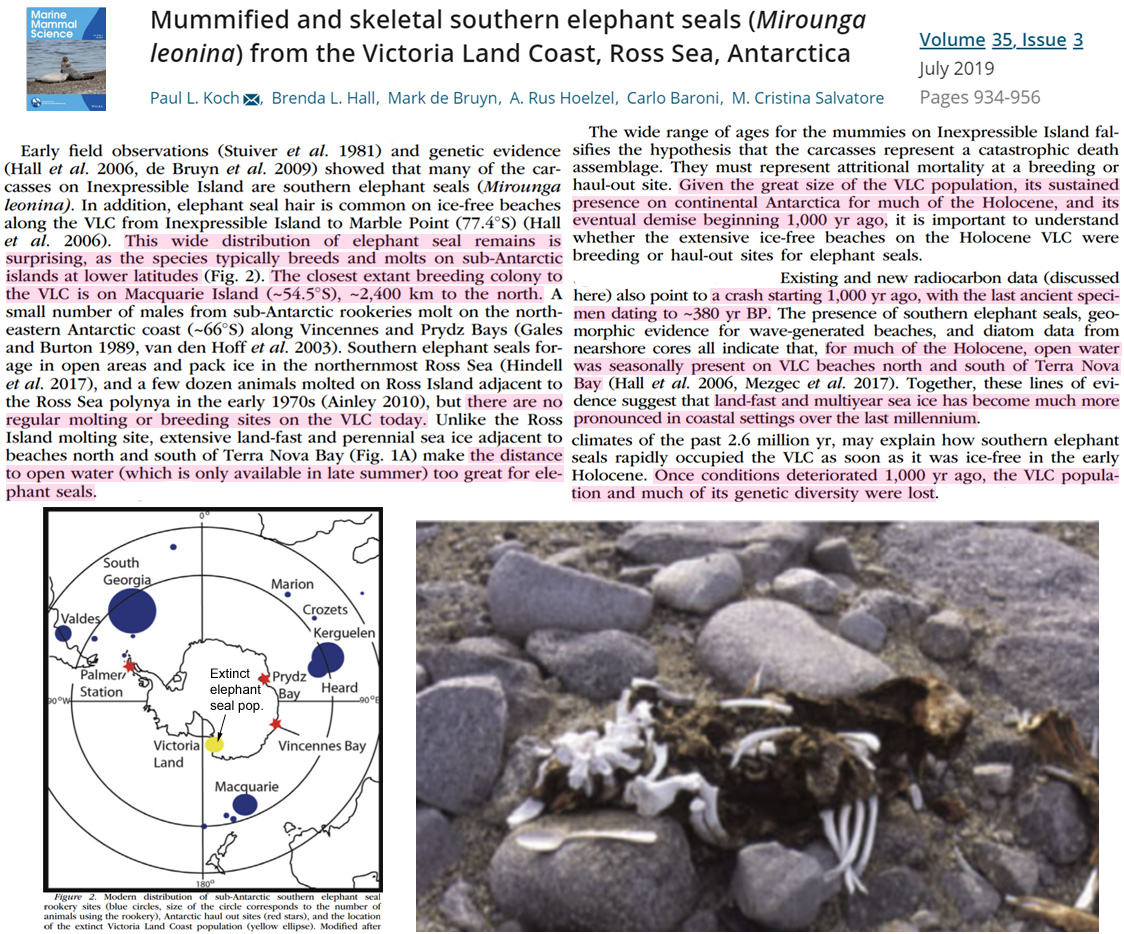
Image Source: Koch et al., 2019
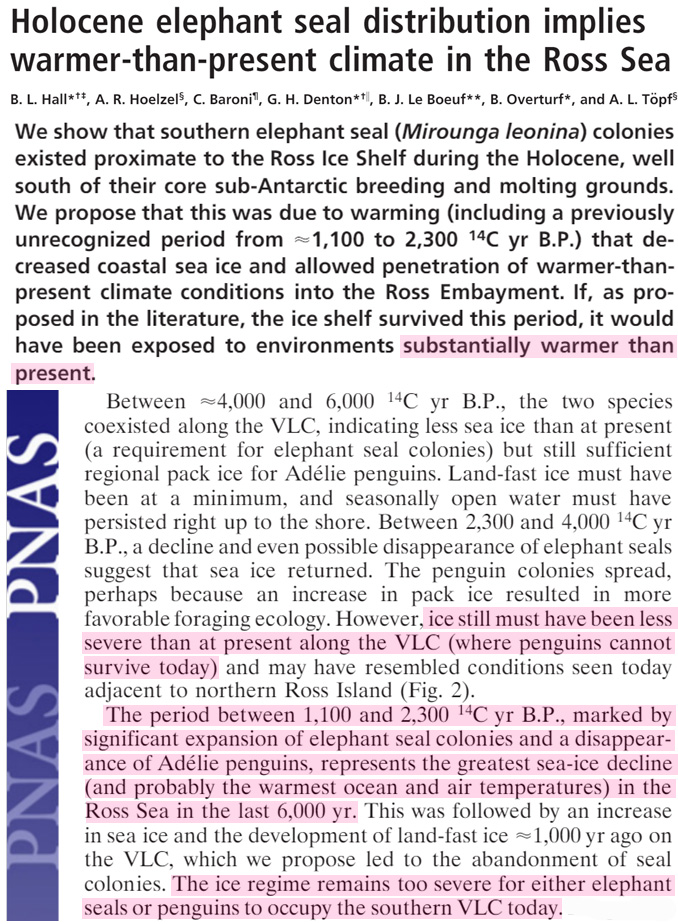
Image Source: Hall et al., 2006
Until the 1990s, it was thought the Earth’s last wooly mammoths went extinct during the Pleistocene-Holocene transition about 15,000 to 10,000 years ago.
But the Arctic’s Wrangel Island is home to extensive mammoth remains. Radiocarbon dating indicates the wooly mammoth continued living on this island until 3700 years ago, or until the Arctic climate became too cold to provide enough grass year-round to sustain them (Bryson et al., 2010, Arppe et al., 2019).
A small mammoth is modeled to have conservatively required 25 kg of grass per day to survive. Mean July temperatures decreased from above 5°C during the Early Holocene to below 2.5°C – the threshold for grass production – by about 4,000 years ago. Consequently, without enough year-round grass to feed on, the wooly mammoth died out (Bryson et al., 2010).
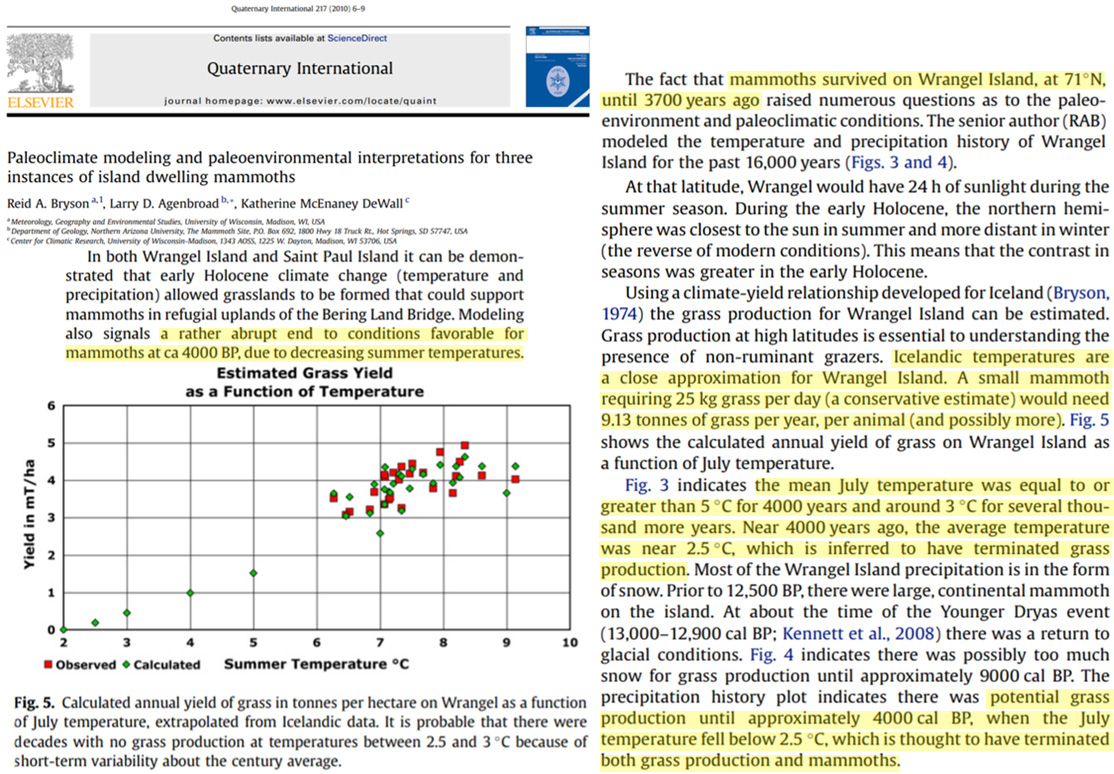
Image Source: Bryson et al., 2010
Other research (Boeskorov, 2020) has provided further evidence the Arctic climate was hospitable to grass-eating megafauna until as recently as a few thousand years ago.
The remains of wild horses, musk ox, and bison have been located north of the Arctic circle in the East Siberian Sea (Arctic Ocean) dating to 5300 to 2200 calibrated years before present. The northernmost Siberian climate is far too cold to sustain these large mammals with enough food year-round today.
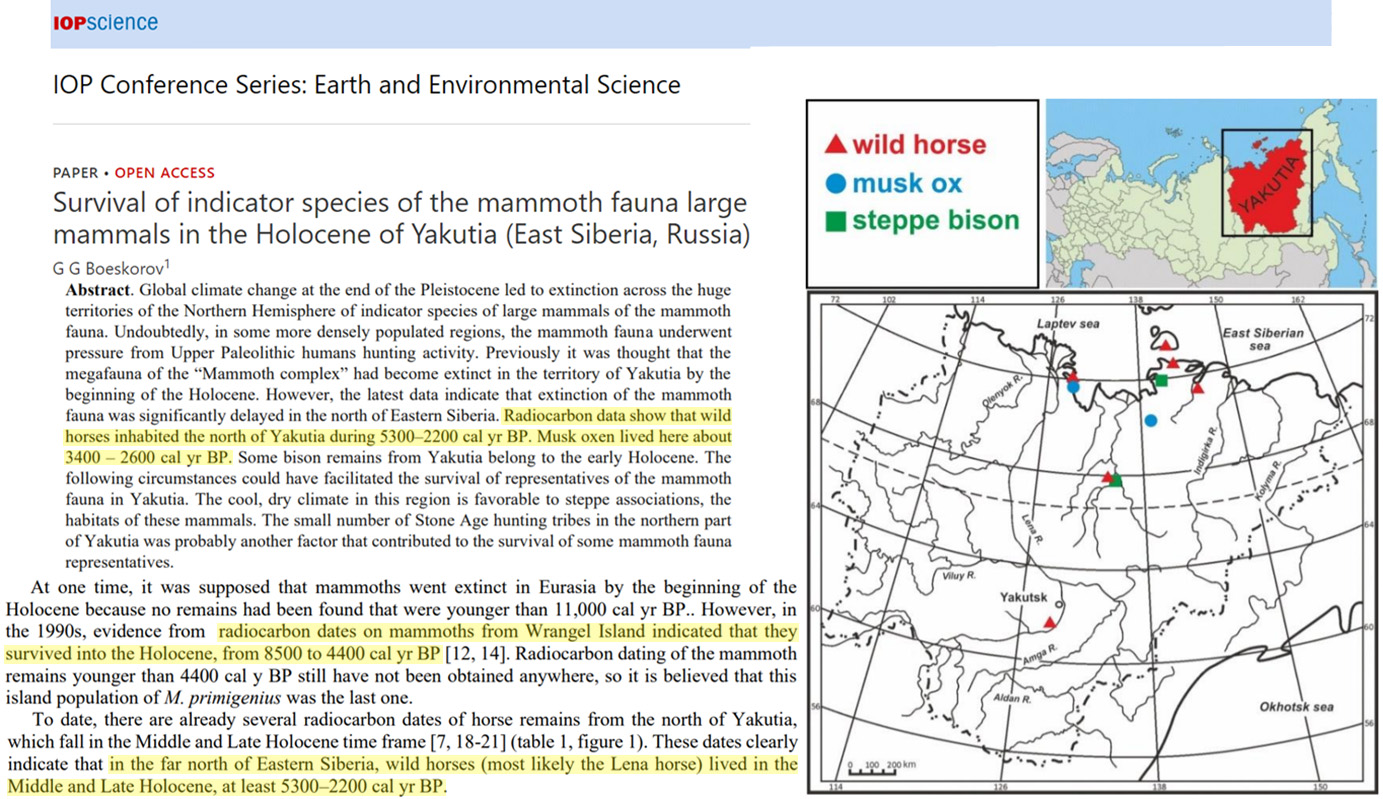
Image Source: Boeskorov, 2020
Today the High Arctic’s Zhokhov Island is treeless tundra surrounded by permanent (year-round) sea ice.
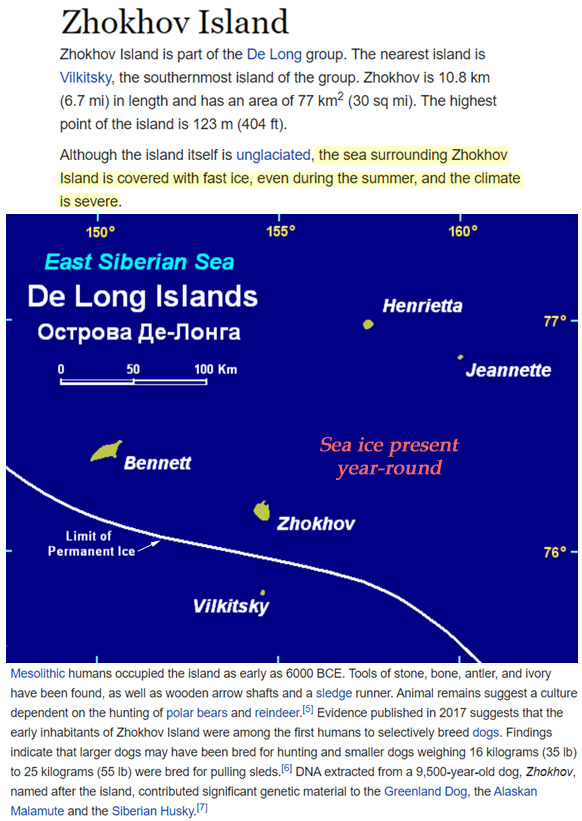
Image Source: Wikipedia
Dating to 8,000 years ago, this region of the Arctic was so much warmer than today (at least 5-6°C) it sustained year-round human occupation, water fowl, dogs, and birch forests (Makeyev et al. 2003;Pitulko et al., 2019 ). The waters surrounding the island were sufficiently sea ice-free to allow open-water travel.
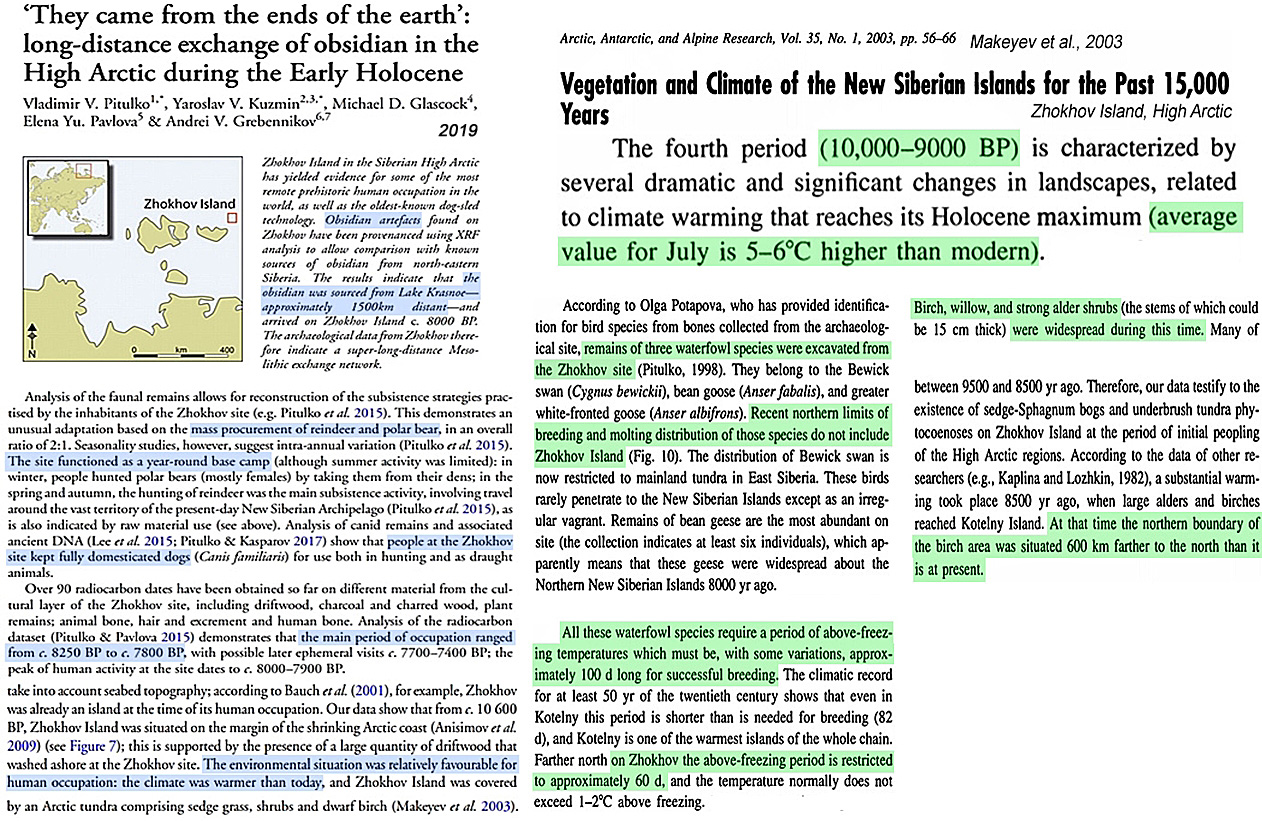
Image Source: Makeyev et al. 2003 and Pitulko et al., 2019
It’s clearly colder today with more ice (glaciers, sea ice) than at any time in the last 10,000 years except for a few centuries during the Little Ice Age (Glazer et al., 2020; Geirsdottir et al., 2020).
Hockey stick temperature creators can argue their “unprecedented warmth” claims with the elephant seals and bison.
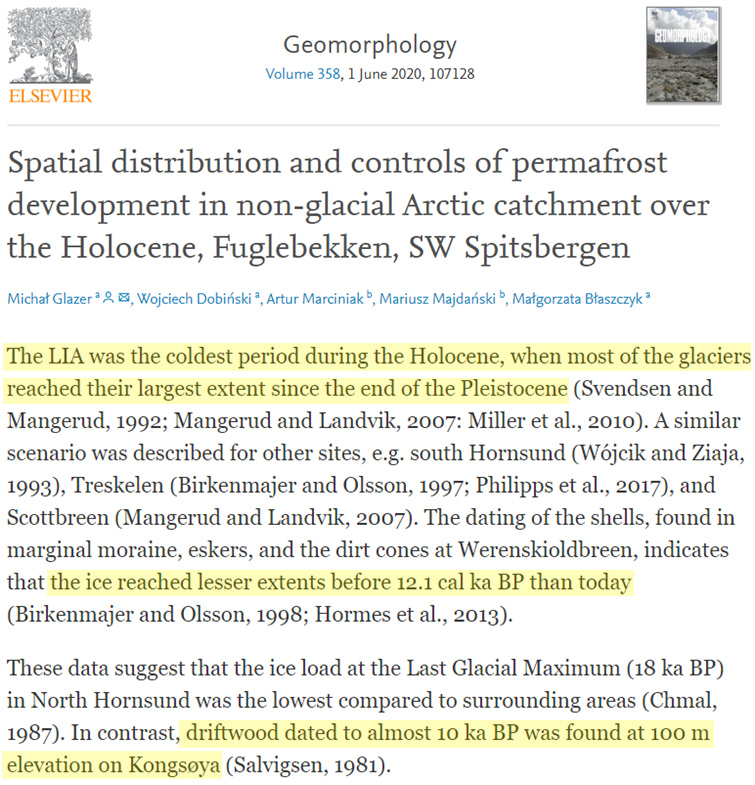
Image Source: Glazer et al., 2020
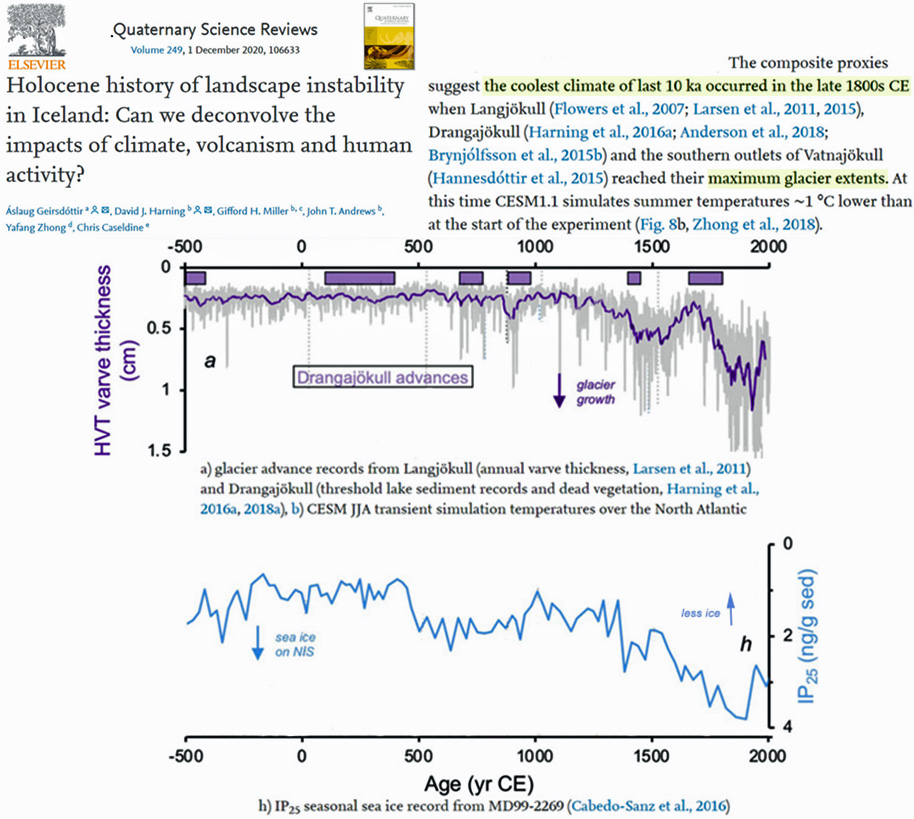





Data always trump models, which is difficult to accept by politicians and other bought persons.
Ah, that pesky empirical evidence. They don’t want you to believe your lying eyes.